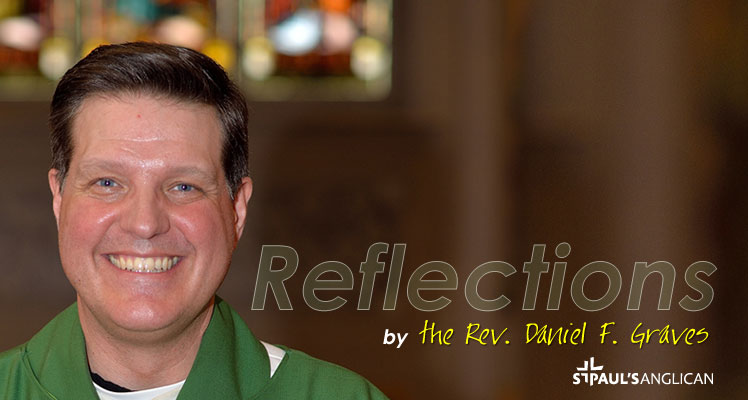
Thou Hatest Nothing Thou Hast Made — A Reflection for Lent
By the Rev. Daniel F. Graves
Almighty and everlasting God, who hatest nothing that thou has made, and dost forgive the sins of all those who are penitent: Create and make in us new and contrite hearts, that we, worthily lamenting ours sins and acknowledging our wretchedness, may obtain of thee, the God of all mercy, perfect remission and forgiveness; through Jesus Christ our Lord. Amen.
-The Collect for Ash Wednesday
God hates nothing that he has made. This is perhaps the most difficult truth we profess as Christian people. There are times in our lives when it is hard to believe that God loves us. We find ourselves to be broken, and yes, even as the old collect says, wretched. Oh, the times that I have wept at being unequal to the task that has been set before me and the mistakes that I have made along the way. If we are honest with ourselves, we will all be able to readily identify moments in which we have failed miserably at something we so confidently undertook. No one wishes a job to end in termination. No one plans on a marriage ending. No one sets out to fail a course or drop out of school. We take up tasks with the best and noblest of intentions, with every hope and belief that we shall see them through to completion. However, it is a reality of life that we shall all fail at one time or another. Sometimes we are not the only one to blame, but more often than not, we have played our part. What shall we do with the guilt and shame we carry over the mistakes we have made?
From time-to-time individuals will appear in my office or drop by the church. I may know them, or sometimes they are complete strangers. The thing they have in common, though, is that they are carrying a burden. The burden they invariably carry is the burden of a wrong, a mistake, or some unfinished business that has weighed heavily on their hearts. Often, words to this effect are spoken: “How can God love me? How can God forgive me after what I have done?” I think that most of us have felt this way at least once or twice in our lives.
God does love us though, even when we are at our worst and even when we fail in the most destructive ways possible. The question really is, “can I forgive myself?” Often we cannot forgive ourselves for the pain of the mistake is too great. Because we cannot forgive ourselves, we cannot believe that God could forgive us. Fortunately, though, our God is a God who forgives us and who loves us through every deep valley that we travel. As Jesus said in the Sermon on the Mount, “God makes the sun rise and set on the evil person as well as the good person.” Sometimes we are that evil person, and yet God has a heart big enough to embrace us, even when our hearts are broken into pieces. God has a will strong enough to set us upon the path of righteousness even when our will has drawn us from the path of life.
Thus, when people come to me — and I venture to say when anyone who is weighed down with regret over things done and left undone comes to any of us as Christian people — it is our sacred task to proclaim the truth of the Gospel, that God loves them, for he hates nothing (and no one) he has made. Every one of us is precious in his sight. Every one of us, broken as we may be, is worthy of being put back together, every one of us has a place around his table and chair at his warm and loving hearth. Perhaps the greatest Lenten discipline of all might be not to give up something precious, but to share something precious, namely, this word of hope, this word of God’s love, to those who journey without hope and have no sense of his love.
c. 2016, the Rev. Daniel F. Graves





Comment(1)
Phil says:
February 19, 2016 at 5:08 pmThat is comforting. Thank you.